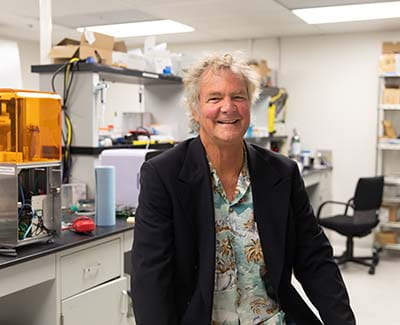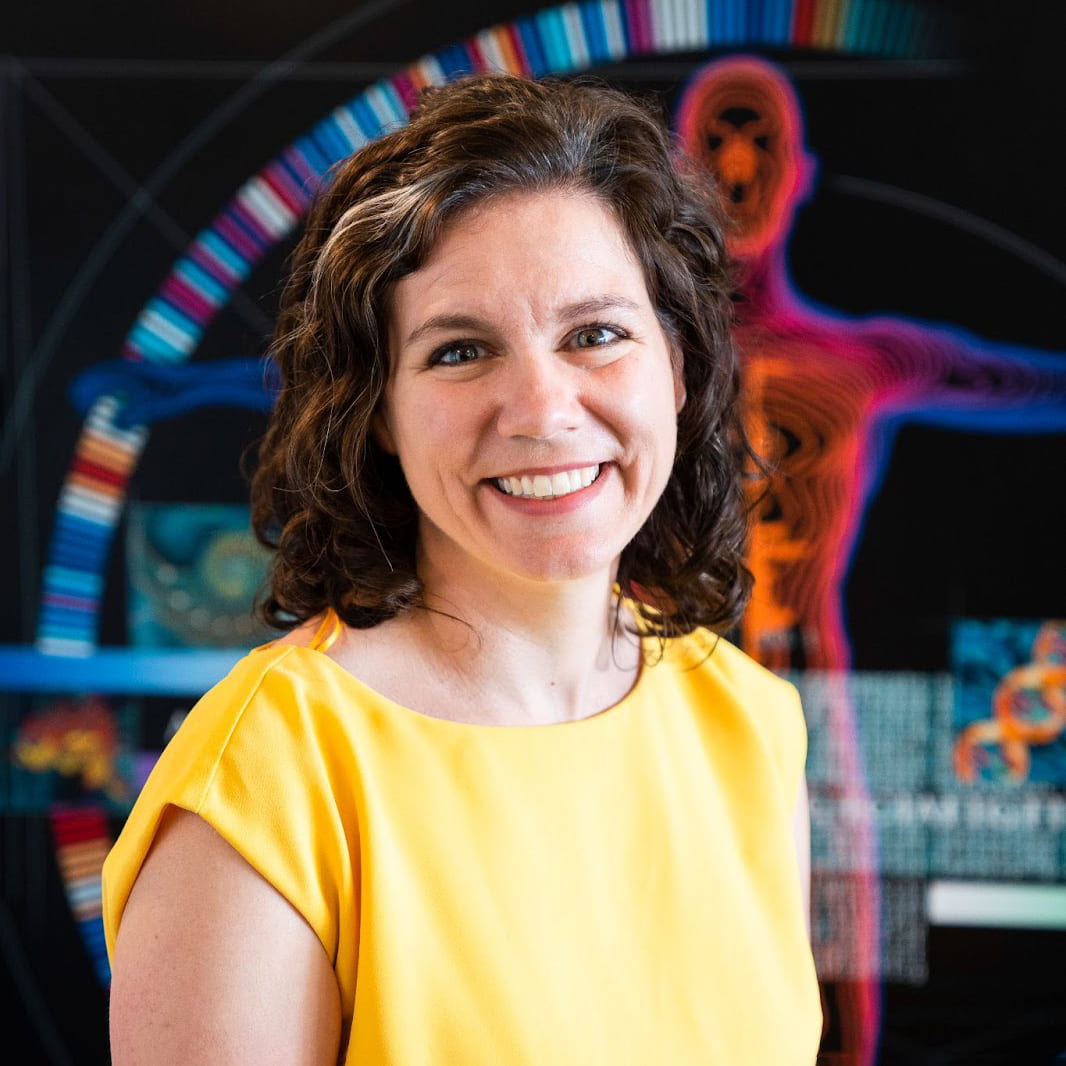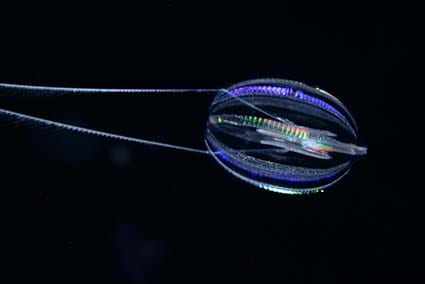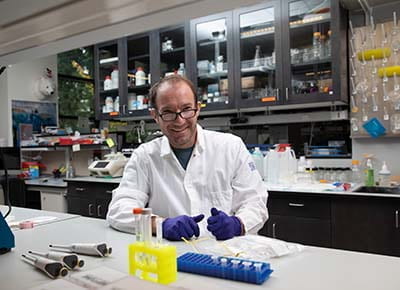Month: May 2023
-

UC Santa Cruz to lead data collection center for major federal project on genetic underpinnings of neurological conditions
Emily Cerf | UCSC News | May 9, 2023 A five-year grant from the NIMH, which is a branch of the National Institutes of Health (NIH), puts a UCSC-led team in charge of managing the large, complex data sets that will be created throughout this project. The data generation centers for the consortium will be:…
-

Karen Miga named 2023 Searle Scholar to study uncharted regions of the human genome
Emily Cerf | UCSC News | May 18, 2023 Karen Miga, assistant professor of biomolecular engineering at UC Santa Cruz, has been named a 2023 Searle Scholar. This prestigious award will support Miga’s research on constitutive heterochromatin, regions of the genome that have been previously unexplored due to their complexity.Miga aims to create the first-ever maps…
-

Splice of life: Merging RNA biology and medicine
Sarah C. P. Williams | UCSC Magazine | May 2023 One day in 2018, UCSC Associate Professor of Molecular, Cell and Developmental Biology Olena Vaske received a large electronic file from doctors at Stanford Medicine. The file contained data on a toddler with a rare cancer in his liver and lungs. Other researchers had already sequenced the…
-

40 years cancer free: Why Mike Dolder is shaving his head
May 24, 2023 Mike Dolder is the Director of Engineering for UC Santa Cruz’s Physical Planning, Development & Operations department (PPDO), which manages and oversees all physical planning, design, and construction activities on campus. When Mike was only two years old, he was diagnosed with Stage IV Wilms tumor, a form of kidney cancer. Clinical…
-

Human pangenome reference will enable more complete and equitable understanding of genomic diversity
Emily Cerf | UCSC | May 10, 2023 Read on the UCSC News Center. UC Santa Cruz scientists, along with a consortium of researchers, have released a draft of the first human pangenome—a new, usable reference for genomics that combines the genetic material of 47 individuals from different ancestral backgrounds to allow for a deeper,…
-

A draft human pangenome reference
Abstract Here the Human Pangenome Reference Consortium presents a first draft of the human pangenome reference. The pangenome contains 47 phased, diploid assemblies from a cohort of genetically diverse individuals (source). These assemblies cover more than 99% of the expected sequence in each genome and are more than 99% accurate at the structural and base…
-

Comb jellies proven to be the sibling group to all other animals
Comb jellies proven to be the sibling group to all other animals Emily Cerf and Raúl Nava | UCSC | May 17, 2023 All animals are related to each other, but comb jellies — a marine invertebrate found in oceans around the world — are the most distantly related to all other animals, shows a new…
-

Comparative genomics of Balto, a famous historic dog, captures lost diversity of 1920s sled dogs
Abstract We reconstruct the phenotype of Balto, the heroic sled dog renowned for transporting diphtheria antitoxin to Nome, Alaska, in 1925, using evolutionary constraint estimates from the Zoonomia alignment of 240 mammals and 682 genomes from dogs and wolves of the 21st century. Balto shares just part of his diverse ancestry with the eponymous Siberian…
-

The contribution of historical processes to contemporary extinction risk in placental mammals
Abstract Species persistence can be influenced by the amount, type, and distribution of diversity across the genome, suggesting a potential relationship between historical demography and resilience. In this study, we surveyed genetic variation across single genomes of 240 mammals that compose the Zoonomia alignment to evaluate how historical effective population size (Ne) affects heterozygosity and…
-

Ed Green named QB3-Santa Cruz Scientific Director
Emily Cerf | UCSC | May 3, 2023 Richard (Ed) Green, professor of biomolecular engineering, has been selected to serve as the next director of the California Institute of Quantitative Biosciences (QB3) at UC Santa Cruz. QB3 is the University of California’s hub for innovation and entrepreneurship in life science, working with UC researchers and…